News from Pratt Center: December 2021
1. A BIG COMMUNITY WIN FOR GOWANUS
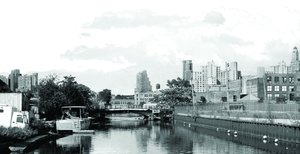
The Gowanus Neighborhood Coalition for Justice (GNCJ) is celebrating what they achieved in the recently approved Gowanus rezoning deal. After years of organizing and advocacy, the coalition’s bottom lines—$200 million for the rehabilitation of nearby public housing, preventing additional pollution into the Gowanus Canal, and community oversight to ensure accountability—were met. One of the last major land use initiatives of the de Blasio administration, the rezoning will pave the way for bringing a substantial new residential population to what was formerly a largely industrial area through the creation of 8,500 new housing units (of which 3,000 will be below market-rate). As we have learned through our work with coalitions in other recently rezoned neighborhoods, these are tough battles where it’s tricky for an equity-oriented community planning process to strike a balance between accepting new development, addressing pre-existing community needs, and preserving neighborhood characteristics that people want to retain.
2021 HIGHLIGHTS
2. WHAT WE FOUGHT FOR IN 2021
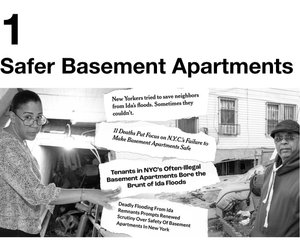
When Hurricane Ida hit and 11 New Yorkers living in basements drowned, the Basement Apartments Safe for Everyone (BASE) Coalition was in its 13th year of fighting to make these units safe. Pratt Center and our partners had spent 2021 trying to get Mayor de Blasio to re-fund the East New York Pilot and follow through on his promise to expand the program citywide. Our report “New York’s Housing Underground: 13 Years Later,” showed how critical this piece of NYC’s housing ecosystem is, especially in low-income, immigrant, communities of color.
Following the storm, Mayor de Blasio claimed such flooding was unforeseeable, despite a Stormwater Resiliency plan from May 2021 which anticipated where extreme flooding was most likely to occur. The Mayor also claimed that fixing the problem of illegal basements was too massive a structural problem to have solutions. We pointed out here, here and here that big problems require big solutions. And funding. And political will.
One of the solutions we’re working to advance is State legislation to legalize accessory dwelling units and eliminate barriers such as parking requirements in NYC’s building and zoning codes. The fight continues in 2022.
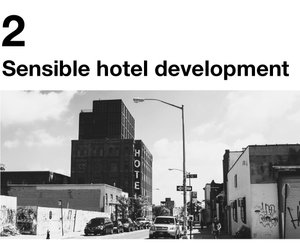
Our report, Still Room for Improvement, made the case that new hotels sprouting up across the city create land use conflicts and contradict other policy goals like affordable housing development and industrial business zones, home to good paying manufacturing jobs that provide employment to a workforce comprised mainly of men of color without college degrees. The report reaffirmed our support for implementing a citywide hotel special permit, which would subject new hotels to an extra scrutiny by the City Council and local community boards representing the impacted neighborhoods. A zoning text amendment proposed by the City Planning Department would do just that, and is expected to pass the City Council by end of the year.
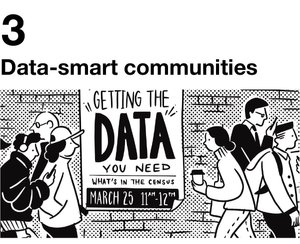
Over 200 non-profit professionals and city agency staff attended our data trainings in 2021. These virtual workshops, offered as part of our Democratizing Data initiative, build the capacity of community organizations by offering practical tips on accessing public data, building data teams, and creating well-designed databases. In 2022 we will offer more workshops covering issues of data privacy, security and ethics, as well as upload previous trainings as short video modules and tutorials that will comprise a library of free data resources on our website.
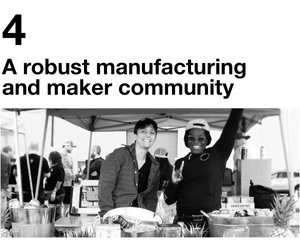
Over 25,000 New Yorkers came out in early October to celebrate Made in NYC Week 2021 at outdoor markets and events held in all five boroughs. Over 60 makers and manufacturers participated in the festivities, which annually showcase the breadth of products and talent of NYC’s manufacturing community.
In December, the New York Times reported on how local production and sourcing gives manufacturers in New York City an advantage amidst the global supply chain crisis. The article highlighted Pratt Center’s efforts to strengthen the sector by fostering connections among the more than 1,500 mostly small companies in our Made in NYC network.
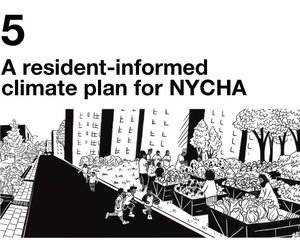
This year we worked with the New York City Housing Authority (NYCHA), the city’s biggest landlord, as they finalized plans for ensuring the 302 developments in their portfolio are more sustainable and climate resilient. NYCHA selected Pratt Center to develop and implement a resident engagement process to ensure that the long-term Sustainability and Climate Resiliency planning for capital projects is inclusive of the more than 400,000 New Yorkers who live at NYCHA. We recruited residents from 14 different developments across 4 boroughs to participate in a 5-part workshop series, which introduced them to NYCHA’s sustainability and climate adaptation efforts, and provided a space to discuss how their needs can be better incorporated into the plans. NYCHA’s Sustainability Agenda and Climate Adaptation Plan were released in August and September.
3. OUR TEAM IS EXPANDING
Come join our tight-knit team of community-based city planners, urban policy wonks and environmental advocates as we work for a more equitable, sustainable NYC.
4. HELP US CONTINUE THE FIGHT FOR A STRONGER MORE SUSTAINABLE NYC
Please consider supporting our work to create a more just and equitable city.